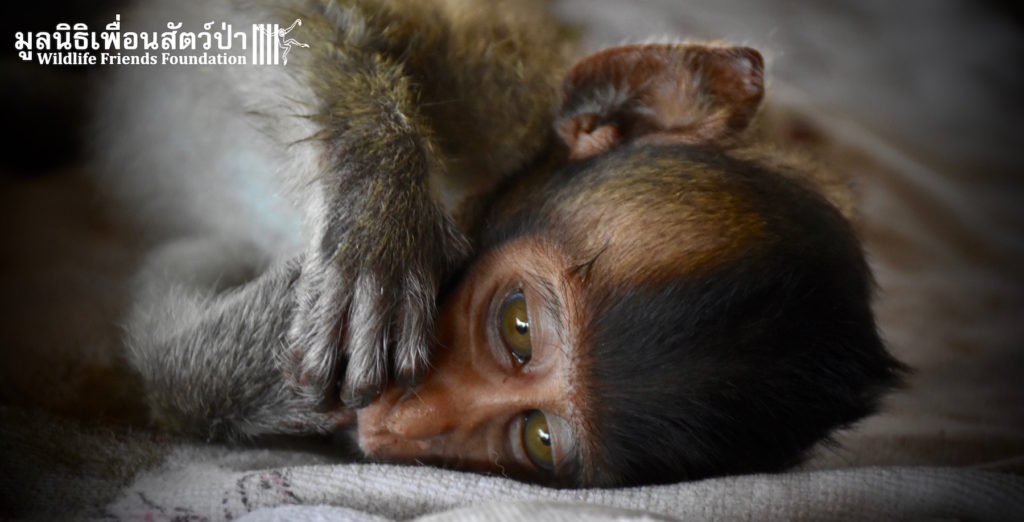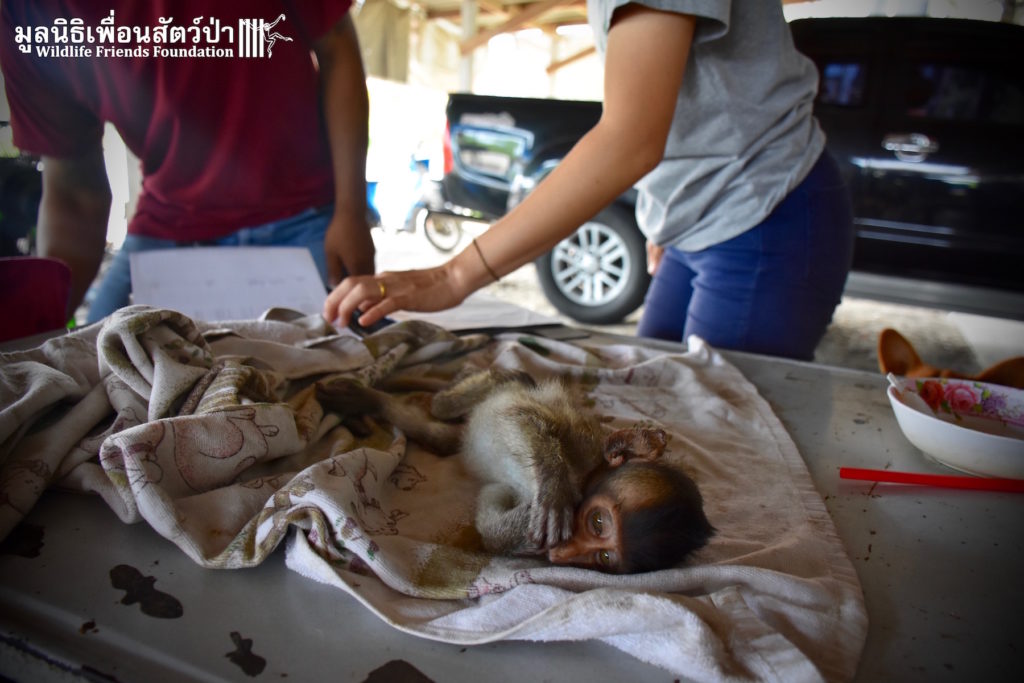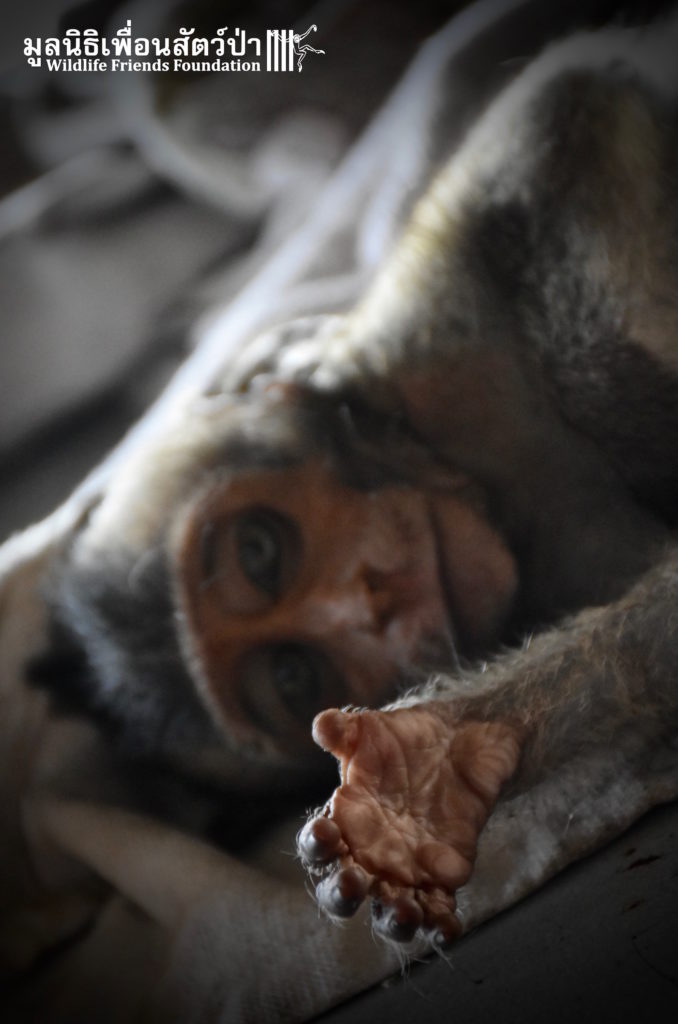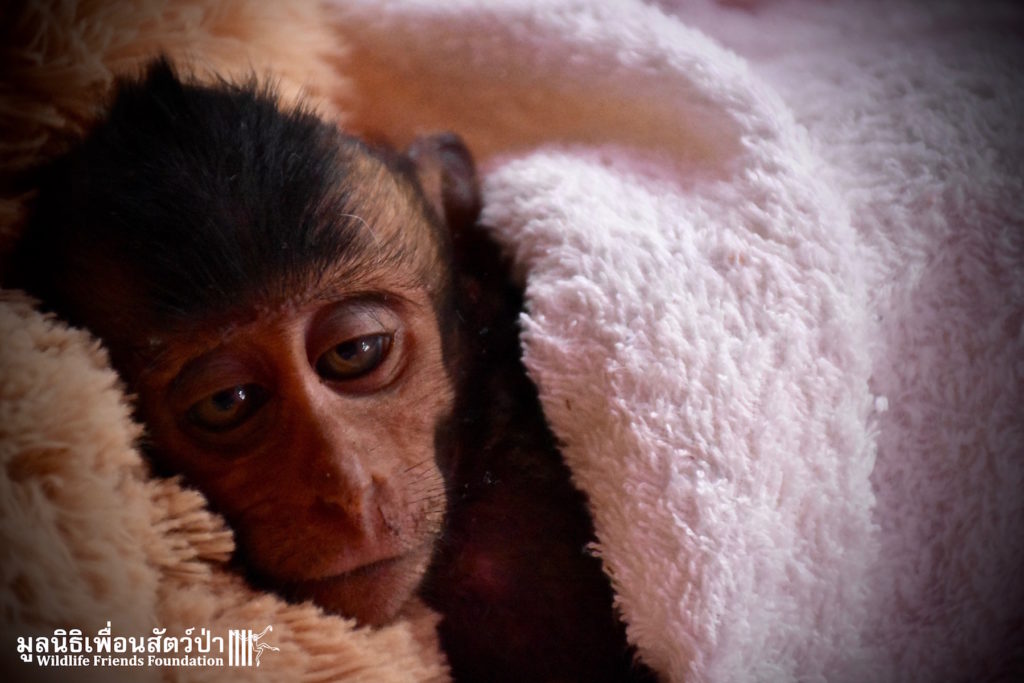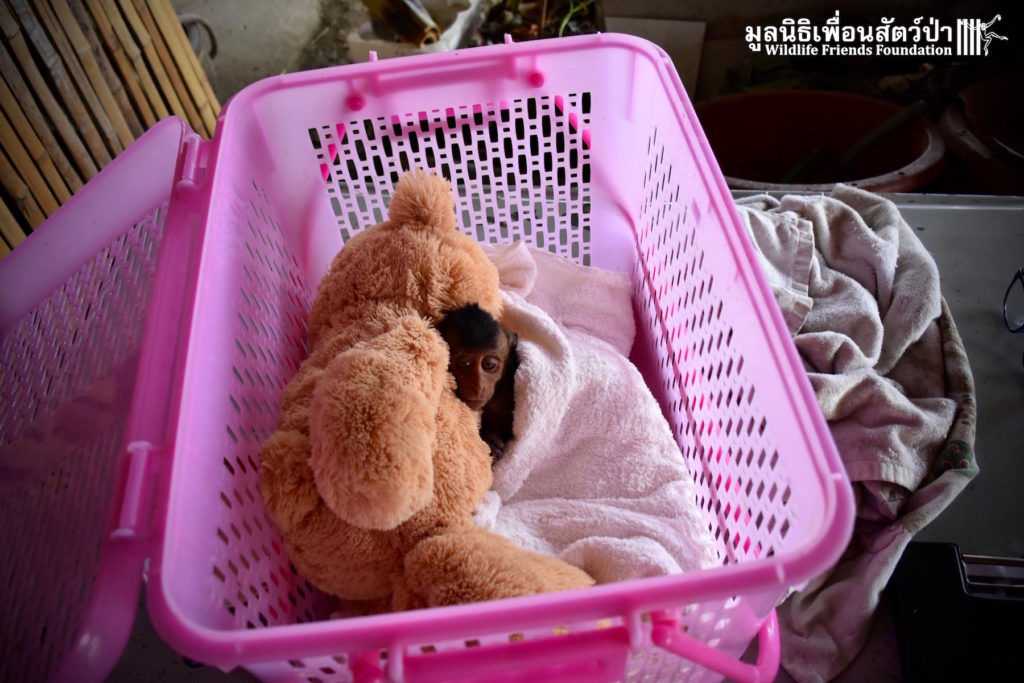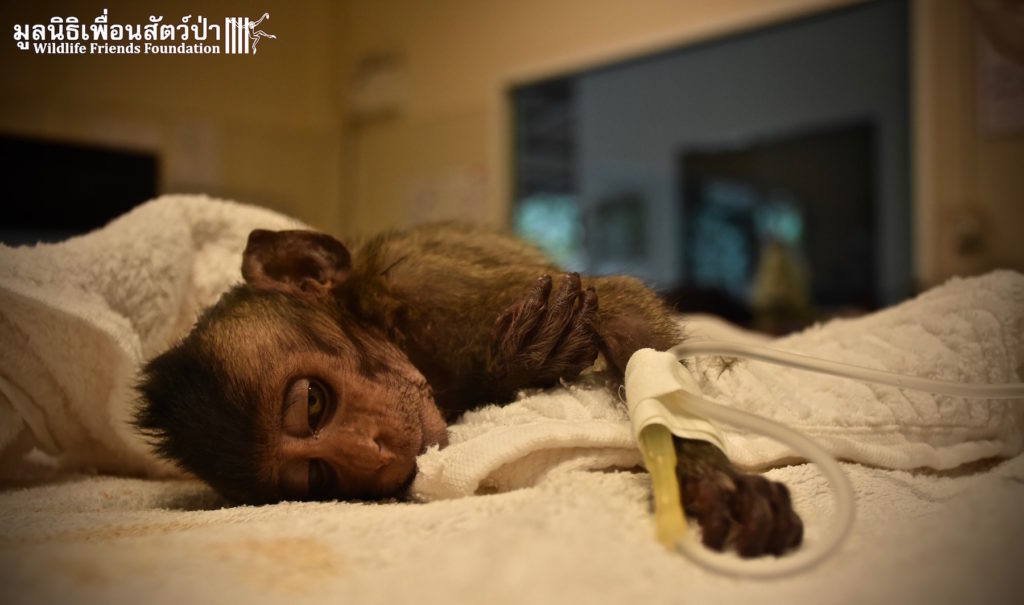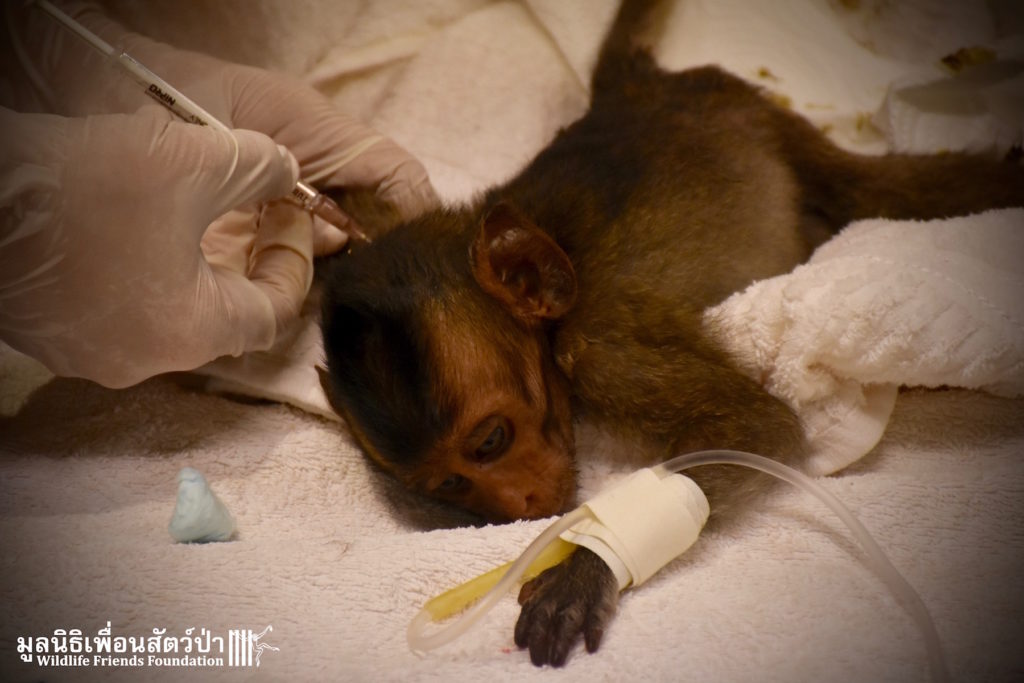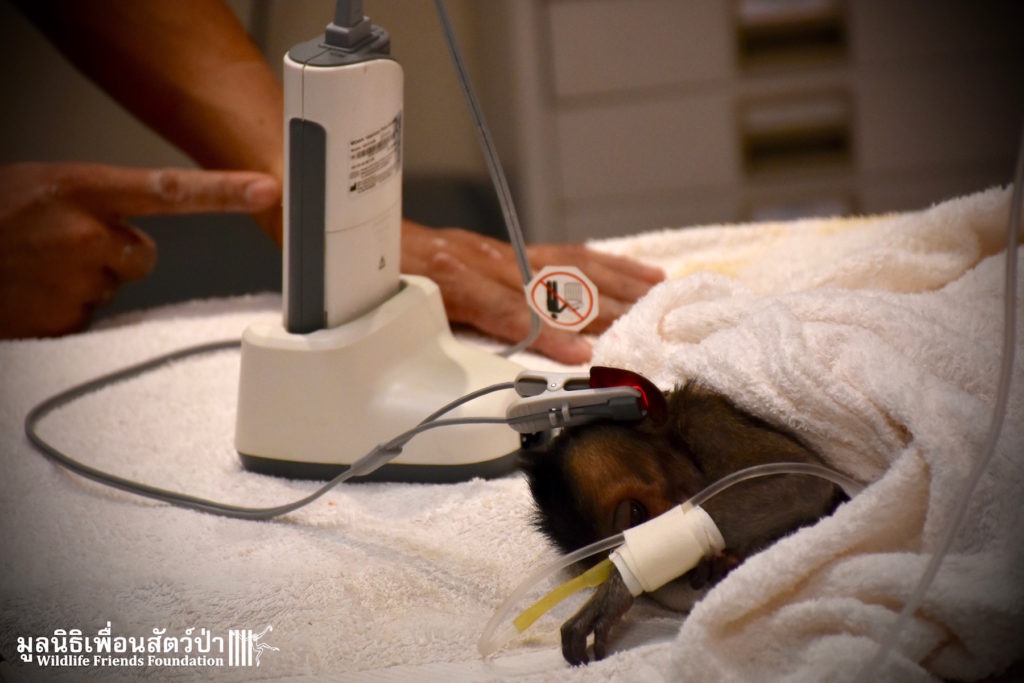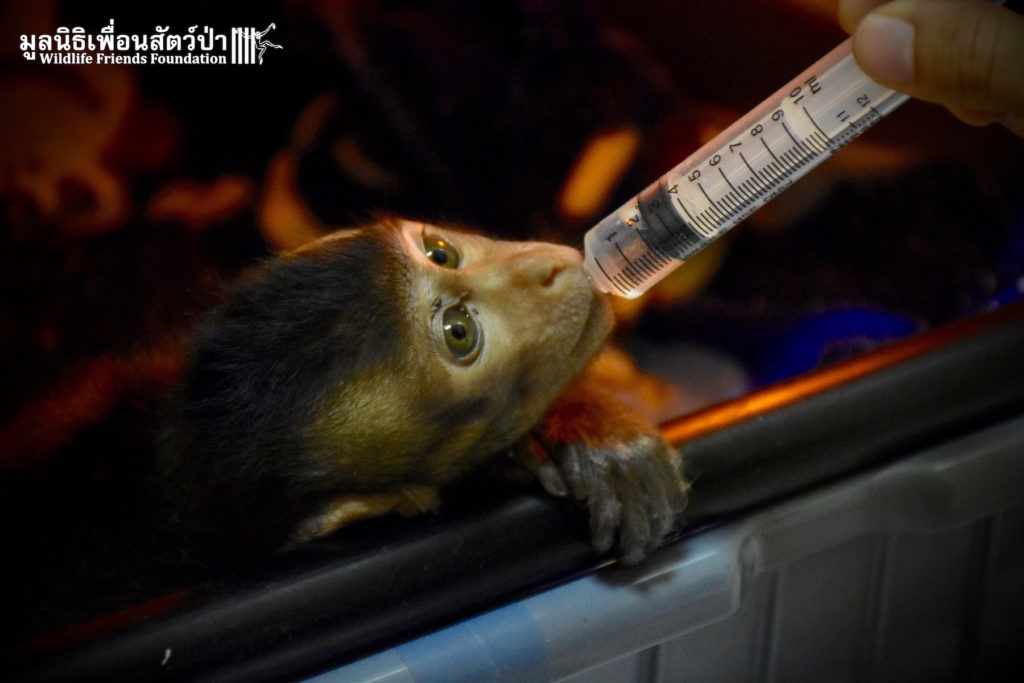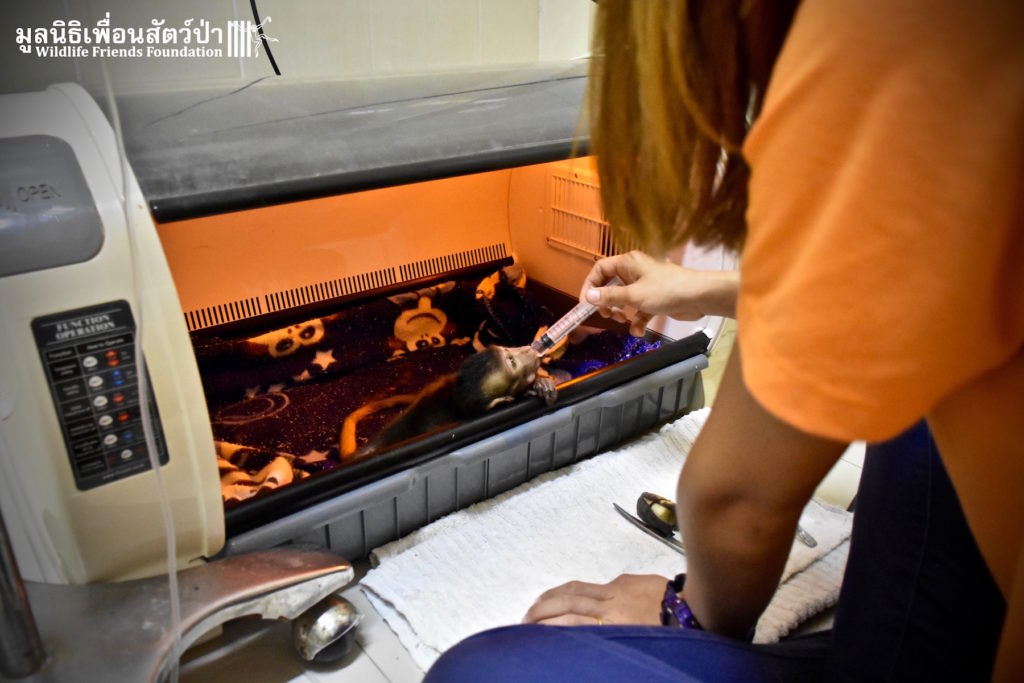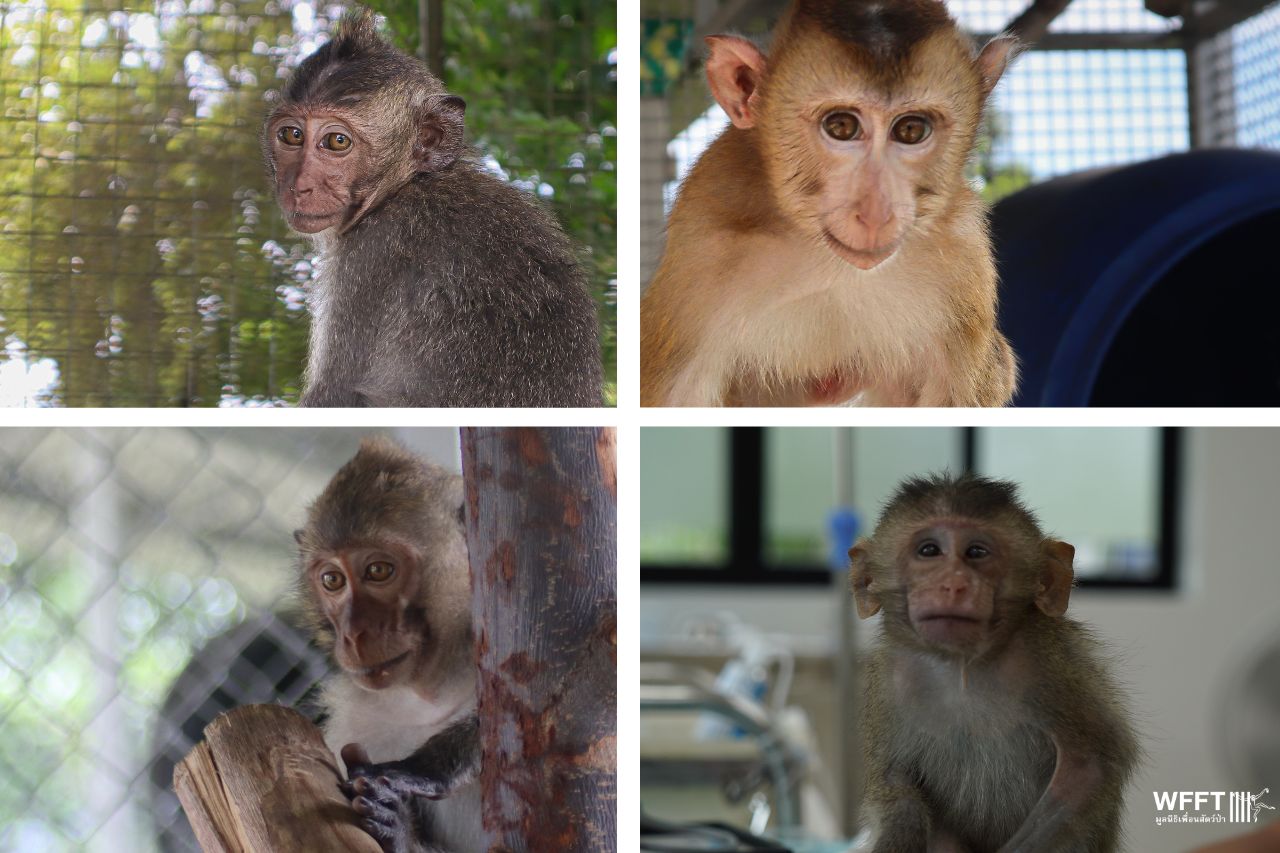The first side enclosures as part of our new coconut monkey project have been completed, and six rescued macaques have moved in.
Injured Infant Macaque ‘Hope’ in a Critical Condition
A few days ago we received reports of a critically injured infant male long-tailed macaque (Macaca fascicularis), that had been found close to a temple inhabited by a large troop of macaques. The rescue team headed out straight away to investigate. Upon arrival to the scene, the severity of his injuries was clear to see, the little infant could barely move, being able to move his head only slightly. During the initial health check by the WFFT Vet Team no obvious broken bones were found, no wounds were seen on his body, his inability to move indicates he is suffering from paralysis throughout most of his little body.
We were told by the people who reported him to us, that he had been found two days’ prior, outside the mountainous area of the temple grounds, lying on the floor, unable to move. They informed us that they believe that he had fallen from a tree. This is highly unlikely for an animal that is built to live in the trees, with excellent abilities of climbing and jumping, to have fallen from a tree. We would assume that he was either hit by a moving vehicle or been beaten with some sort of weapon, both occur regularly with macaques living close to human populations. The team headed back to the WFFT Wildlife Rescue Hospital to further assess his injuries.
The long-tailed macaque is listed as Least Concern (LC) by the IUCN Red list of Threatened Species, in view of its wide distribution, presumed large population, tolerance of a broad range of habitats, occurrence in a number of protected areas. Habitat loss and degradation due to human encroachment, pose the biggest threat to all macaque species. They are regularly persecuted as pests. Increasing competition between macaques and humans due the increase in need of land for agriculture and other human activities is the foremost reason that macaques are persecuted as pests.
Hostile encounters with macaques are common in urban areas due to the active promotion of their presence for spiritual and entertainment purposes by provisioning food for the macaques. We (humans) both promote population growth through the provision of food and the protection habitat, but on the other hand we hinder it through the continued fragmentation of their habitat, and the capture and exportation for research, and the pet-trade.
We have named this little guy ‘Hope’, we estimate he is around 6 months old. After a few days under intensive care of our vet team, yesterday morning he started to move his upper body giving us hope that a may recover. After spending the last few days receiving fluids via intravenous therapy he began to eat soft fruits and drink water, giving us further hope that he may recover. If he manages to pull through he will have a long road to recovery ahead. We are all wishing that this little guy continues to improve.

